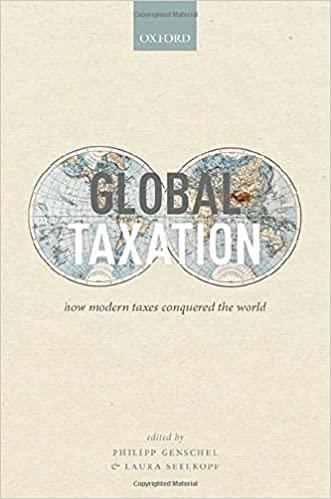P Corporation owns 100% of S Corporation's stock, and S owns 100% of T Corporation's stock. The
Question:
P Corporation owns 100% of S Corporation's stock, and S owns 100% of T Corporation's stock. The three corporations have filed consolidated tax returns for several years. On January 1 of the current yea r, P's basis for its S stock is $5 million, and S's basis for its T stock is $3 million. The corporations' taxable incomes for the current year are $500,000 for P, $350,000 for S, and $250,000 for T. S and T pay no dividends during the year. Each corporation pays its portion of the consolidated tax liability. The corporate tax rate is 21%.
a. Determine P's basis for its S stock and S's basis for its T stock at the end of the current year.
b. Assume the same facts as in Part a except S pays an $80,000 dividend to P and T pays a $90,000 dividend to S. Determine P's basis for its S stock and S's basis for its T stock at the end of the current year.
CorporationA Corporation is a legal form of business that is separate from its owner. In other words, a corporation is a business or organization formed by a group of people, and its right and liabilities separate from those of the individuals involved. It may... Dividend
A dividend is a distribution of a portion of company’s earnings, decided and managed by the company’s board of directors, and paid to the shareholders. Dividends are given on the shares. It is a token reward paid to the shareholders for their...
Step by Step Answer:

Global Taxation How Modern Taxes Conquered The World
ISBN: 9780192897572
1st Edition
Authors: Philipp Genschel, Laura Seelkopf





